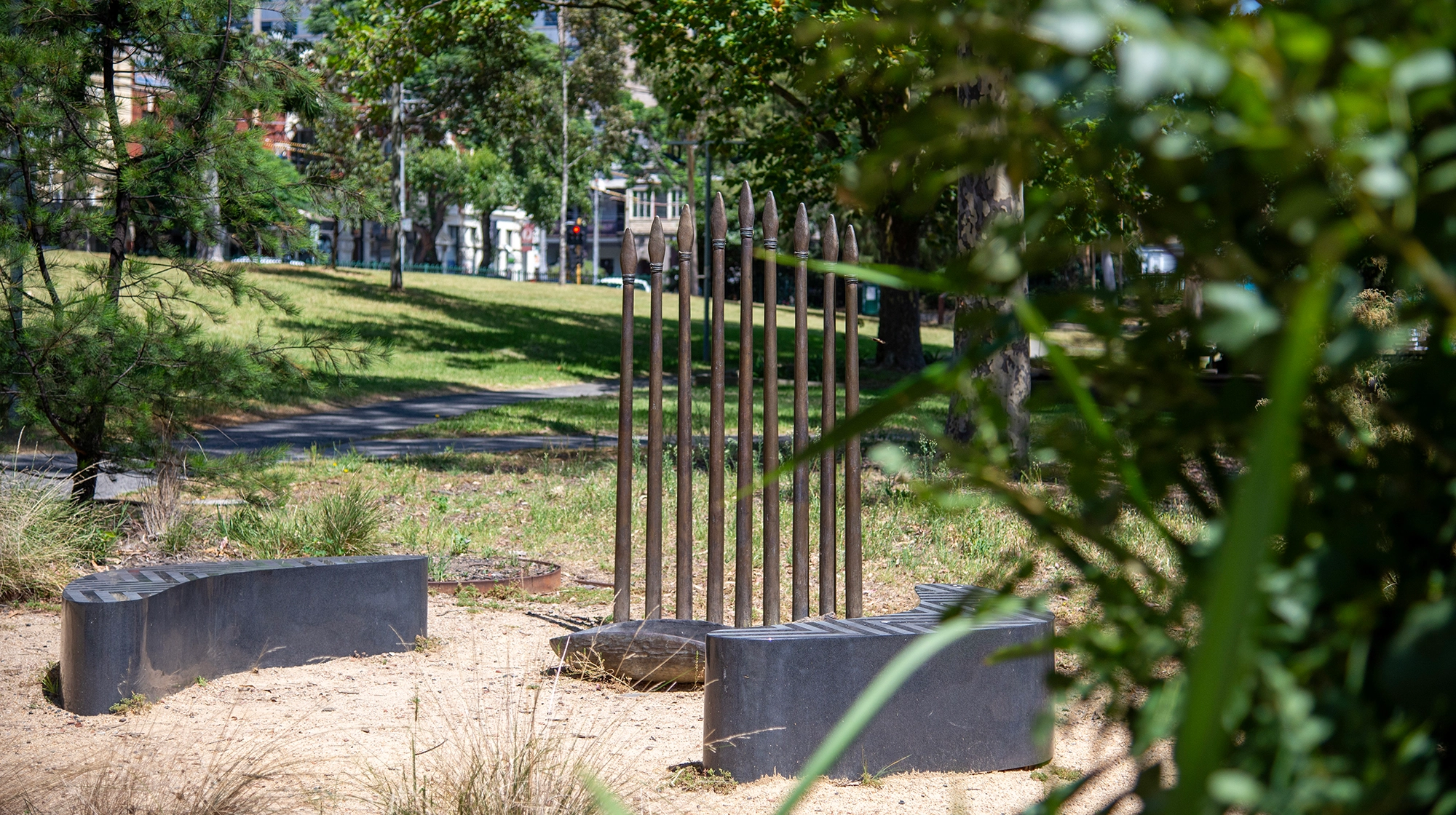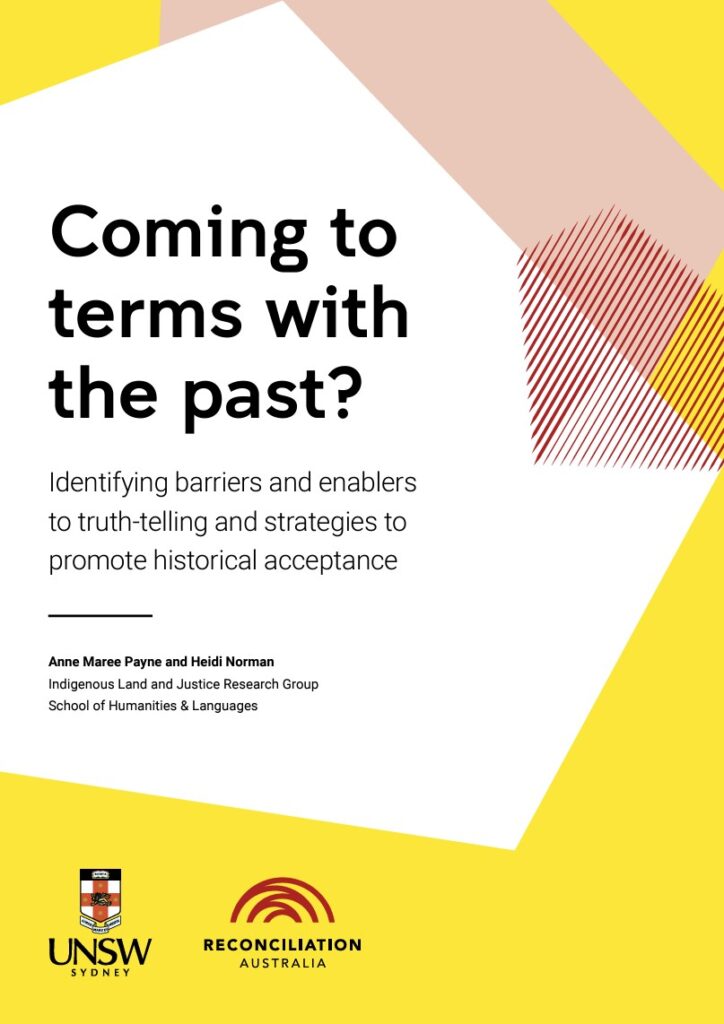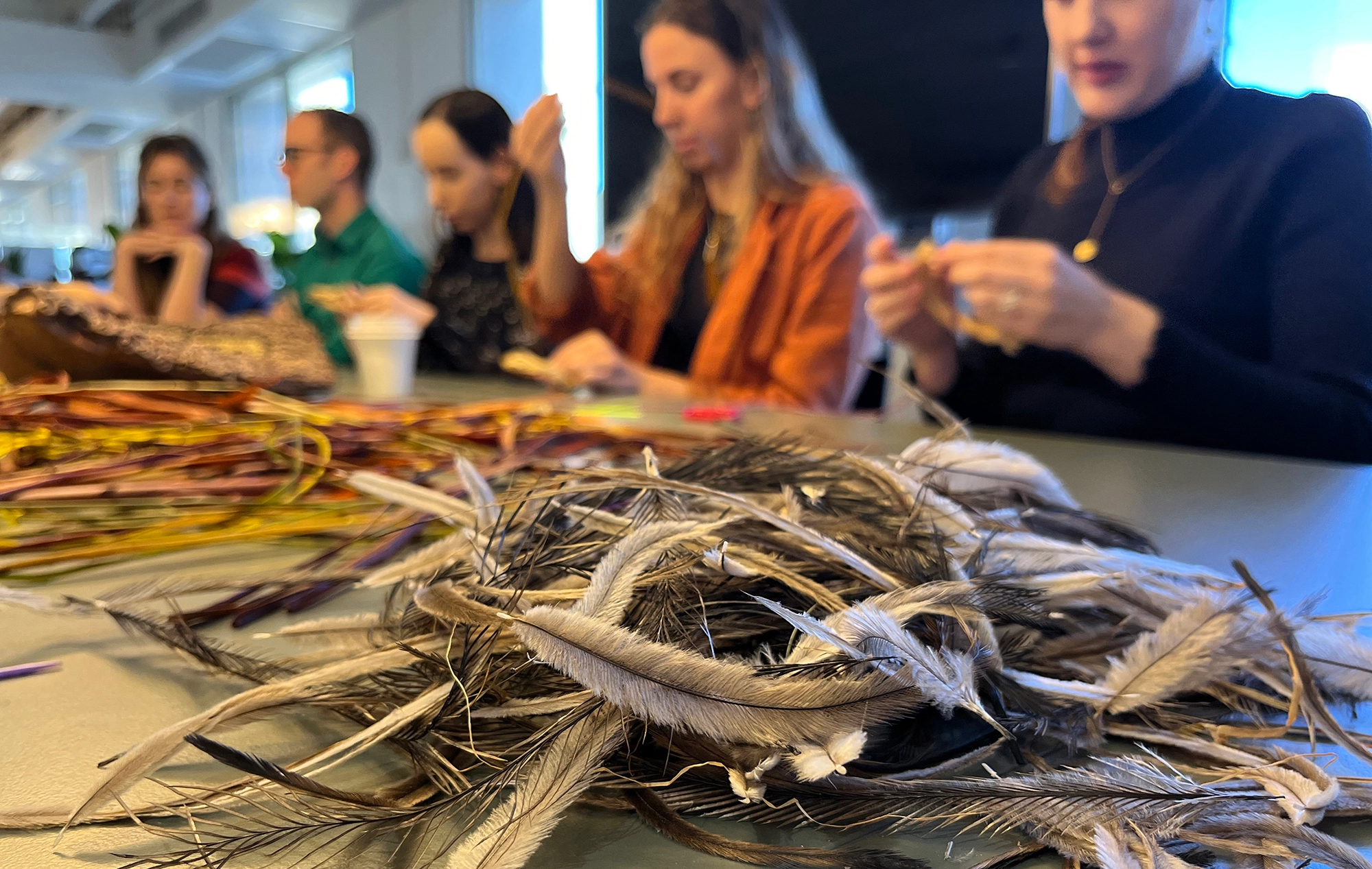
An honest reckoning with the past
Stolen Generations Marker: Remember Me by Reko Rennie, Fitzroy, Victoria. Photo: GML Heritage.
For First Nations people, truth-telling is a crucial step towards recognition and reconciliation.
Reconciliation Australia, together with University of NSW, recently released the report Coming to terms with the past? Identifying barriers and enablers to truth-telling and strategies to promote historical acceptance.
This collaborative study was undertaken by Professor Heidi Norman and Dr Anne Maree Payne from UNSW’s Indigenous Land and Justice Research Group and aimed to develop an understanding of First Nations and non-Indigenous Australians’ attitudes towards truth-telling, what barriers may exist to participating in truth-telling, and identifying an effective practice for enabling truth-telling within communities.
The research showed why people participate in truth-telling varies. Participation can be based on a desire for justice, healing and reconciliation for First Nations peoples, and shared understanding and improving relations for non-Indigenous Australians.
The research emphasises for truth-telling to be effective, it must:
- Be led by Aboriginal and Torres Strait Islander people and communities.
- Engage with First Nations perspectives.
- Recognise the ongoing impacts of the past on First Nations people’s lives today.
- Be ongoing and understood as a process rather than a ‘one-off’ event.
- Aim to achieve change and improve outcomes for Aboriginal and Torres Strait Islander people.¹
For non-Indigenous Australians who want to provide opportunities for truth-telling and see positive change for First Nations people, this study provides important insights and guidance.
Speakers at the report’s online launch included Professor Leanne Holt, UNSW Deputy Vice-Chancellor Indigenous, Karen Mundine, CEO of Reconciliation Australia, Professor Heidi Norman and Dr Anne Maree Payne from The Indigenous Land and Justice Research Group, UNSW. Uncle Garry Matthews and Tess Meehan, two research participants involved in truth-telling activities, shared their first-hand experience. Both emphasised listening as the single most important action that non-Indigenous people can do during truth-telling conversations.
At GML we listen respectfully and carefully. Understanding that when we are trusted with First Nations stories we need to record and reflect them back accurately in accordance with rights and interests. We endeavour to achieve meaningful outcomes for communities and their cultural heritage and actively identify ways to work towards improved recognition and respect for First Nations people.
You can read the Coming to terms with the past? report on the Reconciliation Australia website.
¹ Anne Maree Payne and Heidi Norman, Coming to terms with the past? Identifying barriers and enablers to truth-telling and strategies to promote historical acceptance, summary of key findings, page 5.



